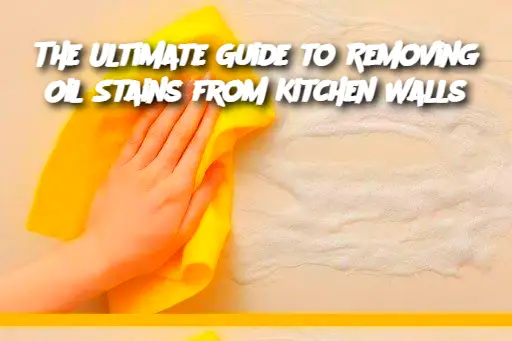FAQ:
1. Can I use regular soap instead of dish soap?
While regular soap can work, dish soap is specifically formulated to break down grease, making it more effective for cleaning oil stains. For the best results, it’s recommended to use a dish soap that is known for grease-fighting properties.
2. What if the oil stains are old?
If the stains are old and have set in, you may need to repeat the cleaning process a few times or use a stronger degreaser. Patience is key when dealing with older stains.
3. Are there any natural alternatives to commercial cleaners?
Yes! You can try a mixture of equal parts baking soda and water to form a paste. Apply it to the stains, let it sit for a few minutes, and then scrub gently. You can also use a mixture of vinegar and water as an alternative.
4. Can I use a pressure washer to clean kitchen walls?
Using a pressure washer on indoor walls is generally not recommended, especially for painted surfaces, as it can cause damage. Stick to gentler cleaning methods for the best results.
5. How can I prevent oil stains from occurring on my kitchen walls?
To reduce the chances of oil splatters, consider installing a backsplash behind your cooking area. Additionally, always use a splatter guard when frying or cooking with oil, and clean up spills immediately to prevent them from staining.
Conclusion:
Keeping your kitchen walls clean and oil-free doesn’t have to be a difficult or time-consuming task. With the right cleaning solutions and techniques, you can remove grease and oil stains easily and effectively. Regular maintenance and immediate cleaning can keep your kitchen looking fresh and spotless, allowing you to focus more on cooking and less on cleaning.
ADVERTISEMENT

